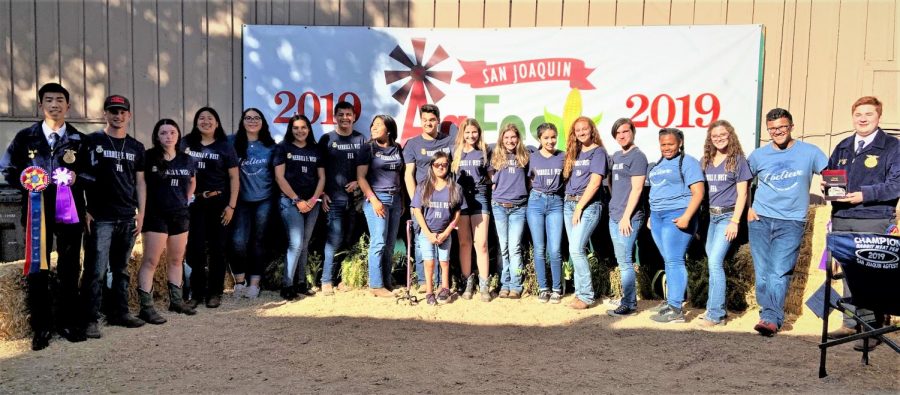Agriculture: its history and response to a pandemic
Ms. Ferrell offers her thoughts as a guest columnist
April 29, 2020
I consider agriculture the foundation of society as we now know it. Over the past 200 years the percentage of Americans involved in production agriculture has dropped from in the 90 something percent to under 2 percent. Modern technology has allowed this change to occur as more and more inventions were created. Each agriculture invention gave people time, our most precious commodity. Take, for example, the cotton gin invented by Eli Whitney in 1793. The purpose of the cotton gin is to remove the seeds from the cotton fiber. While this might not seem like a big deal, take a moment to think about picking small seeds out of a cotton boll. This was a labor-intensive job that required hours and hours of work. In 1837 John Deere invented the steel plow that allowed farmers to plow fields at a much quicker pace as they did not have to be cleaned as often as wooden plows that would become caked in rich mid-western soil. Each of these inventions allowed people to leave the farm and pursue other opportunities including higher education.
In more recent times our advances in science and the discovery of DNA and genes has given scientists the opportunity to learn more about agriculture commodities. This study and analyzing of DNA has led to an increase in Genetically Modified Organisms (GMO). First off, don’t get me wrong, we have been changing our plants and animals for generations by using plant breeding and artificial selection. As my students know, we can select for particular traits we want to see in our commodities. These can include larger ears of corn, increase milk production and less seeds. As we breed plants and animals over time, we can change them through the process of artificial selection. The most recent debate about GMO foods is based on the unknown. While multiple studies have been done on GMO crops, the general public feels uncomfortable with the idea of genetically modifying our food. While farmers have been artificially selecting for traits for years, it just recently began occurring in the laboratory and not the field. There are only nine crops that are genetically modified on the market. They are: alfalfa, canola, cotton, maize, papaya, potato, soybean, squash and sugar beet. While more research needs to be done, there is nothing to fear with GM foods.
Okay, so what does all of this have to do with this COVID-19 pandemic? Every time I go to the grocery store, I see different products that are not available, and I am not just talking toilet paper! The shelter in place order has affected all parts of our society, including agriculture. Agriculture has been deemed an essential service, and farmers and ranchers have not stopped farming since the beginning of the pandemic. According to the article “Experts Discusses Effects of COVID-19 Pandemic on Agriculture” published by Texas Tech University, the U.S. supply chain is strong and there is enough food to meet American demands. However, where those food demands occur are changing. Last year Americans consumed more than 50% of their food away from home. Shifting the supply to grocery stores will not happen instantaneously, these things take time. As we are all adjusting to a change due to COVID-19, so is our food supply.
The agriculture industry has proven to be resilient and able to adapt to change. As the agriculture community as a whole adapts, so do our students. West FFA currently has 18 students raising market animals for AgFest, which has moved to a virtual format this year. These students, in addition to all the distance learning, are also raising and learning about animal agriculture. They are feeding, exercising and caring for these animals. They are learning that agriculture does not stop during a pandemic; it keeps going and supplies us with healthy food.
Next time you have a meal, stop and think about those that provided that meal for you. The farmers and ranchers, the harvesting facilities, the factories, the truckers, grocery store workers and more. Nothing, not even a pandemic, can stop American agriculture. As the FFA creed states, “I believe in the future of Agriculture, with a faith born not of words but of deeds…” Thank you to every person involved in agriculture from farm to table, you are deeply appreciated.
To learn more about agriculture, join an agriculture course!

